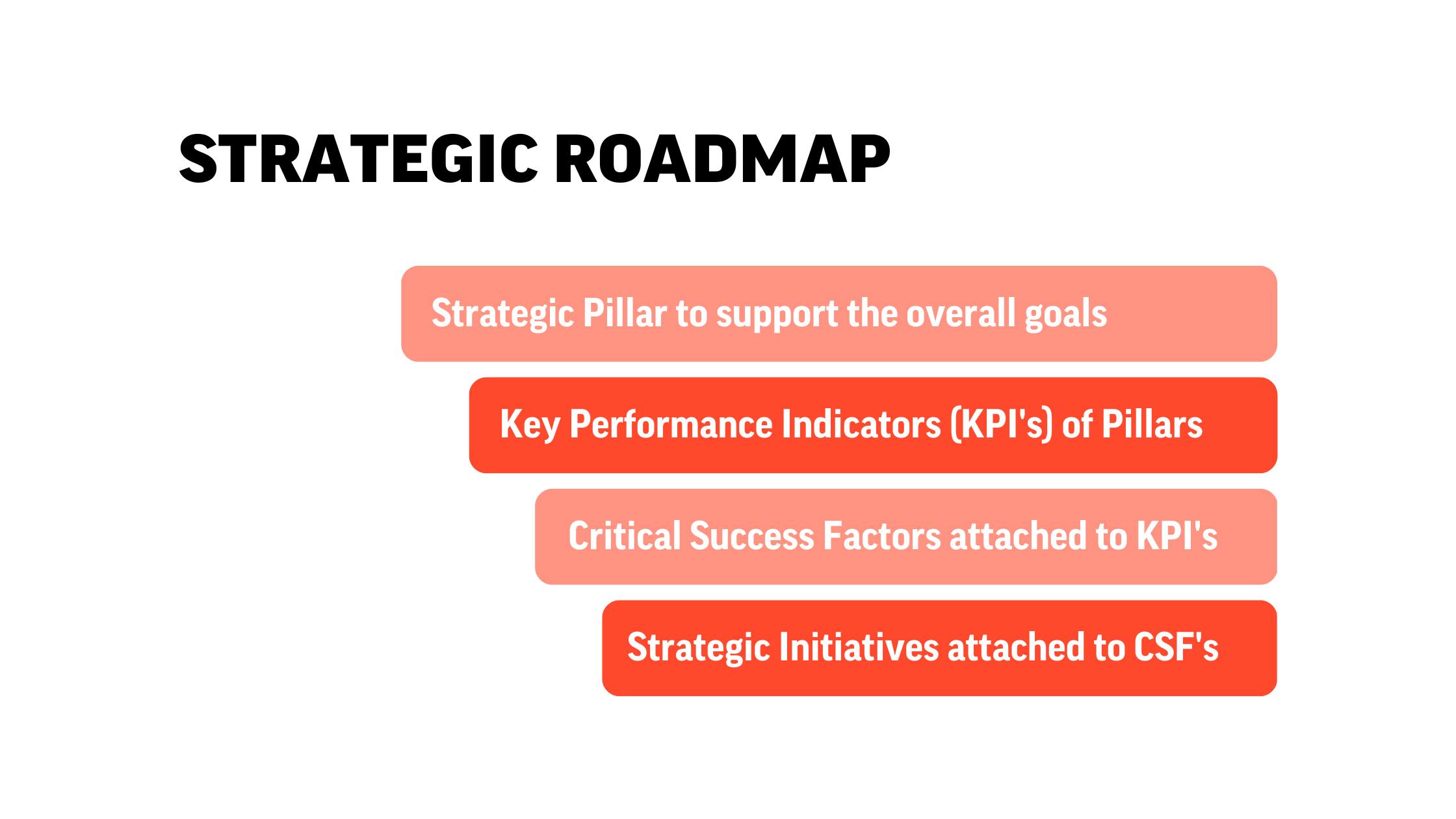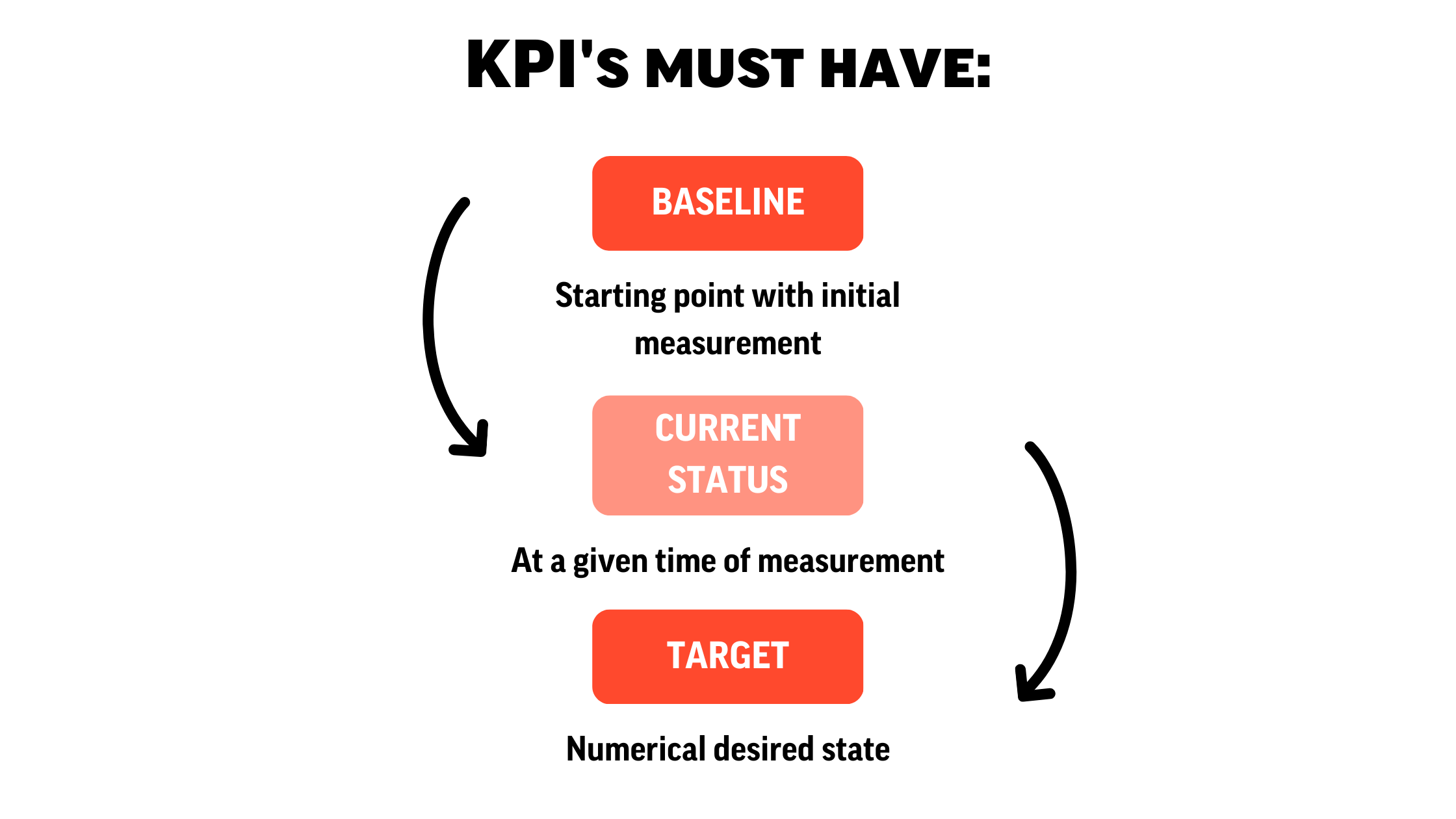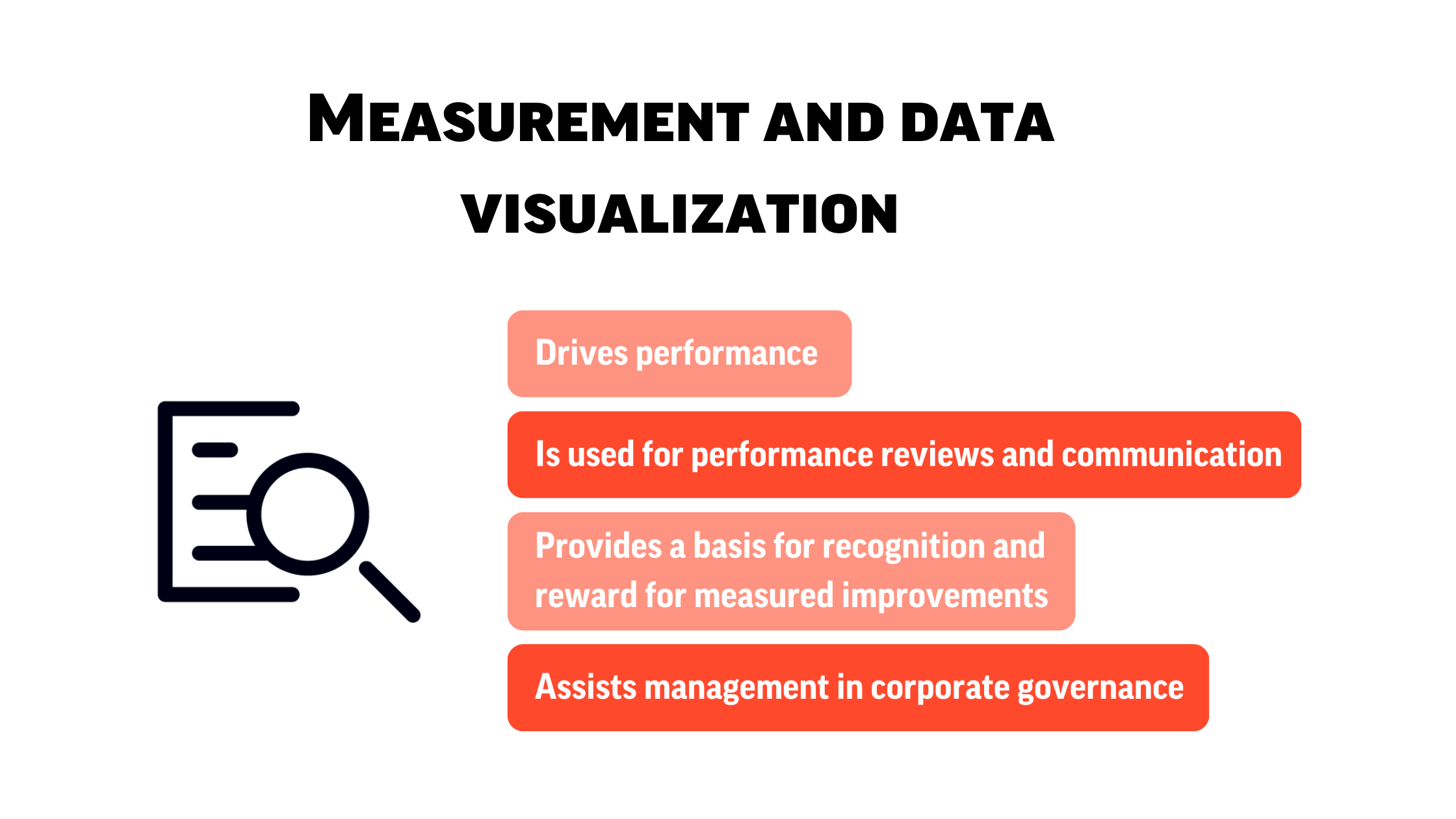What gets measured gets done! The power of KPIs

What gets measured gets done! It's a simple truth that's common knowledge. That's why careful action, consistency, and transparency in measuring and communicating progress are all vital to successful Strategy Execution Management. Measurements drive the right actions, which in turn drive the necessary changes. It’s therefore crucial that KPIs be formulated correctly.
If you want to develop an effective strategy for growth, you must not only identify performance parameters that will support growth, but also decide which success factors are the most critical and also how you‘ll measure your strategic performance. Think of it as a strategic hierarchy with the overall business goal at the top, followed by performance indicators, success factors, and specific initiatives:
Define the factors that are critical for success
Before you can decide what your concrete action points (also called strategic initiatives) should be, you must identify the critical success factors (CSFs). These are the areas where the company wants to prioritize its resources over the period covered by the strategy.
You could also call these the overarching goals that are critical to the success of the business. Critical Success Factors should support the business strategy that you have prioritized in the Pillars, and of course also support the overall goals and success of the business.
What gets measured gets done
Key Performance Indicators show you how successful each action has been. Success is measured by the degree to which you achieve the targets of each CSF.
Have the team discuss which KPIs are critical and how they should be measured. Be quite clear about what a KPI really is and why it’s important (there may be ambiguity as to whether a KPI is a metric or an objective, for example). It’s often also unclear which KPIs are strategic in nature and which are operational. KPIs are attached to a Critical Success Factor or Strategic Objective and should be a measurable target to reach as part of the strategic intent.
It’s tempting to use only performance indicators that are available or easy to measure. However, if we aren’t measuring what’s important, we aren’t looking in the right place. Remember: what gets measured gets done. This makes KPIs very powerful, but dangerous at the same time. KPIs must be carefully defined — often the most difficult and time-consuming task when formulating a strategy.

Keep it SMART and simple
There are different ways to determine whether you’ve probably achieved a goal. It’s important when working with performance measurement to be very specific and keep it simple: what do you want to achieve? When will you achieve it? What will be the evidence that you achieved it? Who’s responsible for making it happen? Who are you depending on?
A good KPI should be easy to communicate and easy to understand, but it isn’t enough to just say "I want to make a million." Here you can use the SMART model as a guide. SMART stands for Specific, Measurable, Achievable, Relevant, and Time-bound. For example, "I want to replace my old car with a new electric one and earn 50,000 euros, which should be in my bank account within 365 days from this specific date."

Scrutinize your goals
Strategic KPIs should be clearly attached to a Strategic Pillar or Critical Success Factor. Strategic KPIs shouldn’t be confused with Initiative KPIs, which are a metric to measure the result of a given initiative. They should be ongoing and measured as long as the objective or Critical Success Factor is relevant. Before defining a target, decide how the KPI will be measured and what the current baseline is. In a strategic hierarchy of Pillars and Critical Success Factors, one metric for each Critical Success Factor is the norm. Two might be needed if the Critical Success Factor includes more than one performance variable. Because remember: what gets measured gets done.
The guiding principles to all goal setting: scrutinize, scrutinize, and scrutinize! Critical situations cannot allow any room for misinterpretations or private editions of goals. Don't allow any leeway for politics or excuses such as “I thought it meant...” Crystallize the description. Every member of the Executive Team must unequivocally accept the agreed-upon goals and how they will be measured.
The objective of the Speed and Agility cornerstone is to be fast, flexible, and predictable. Make a clear and concise strategic roadmap based on a redefined desired state, a strategic framework, measurable goals, and identified must-win battles.
Understanding how your KPIs are performing is a must have in today's business! We have the right test that will help you assess how mature are your KPIs!
Unachievable goals damage team morale, but without a challenge there’s no motivation and what gets measured, gets managed!










